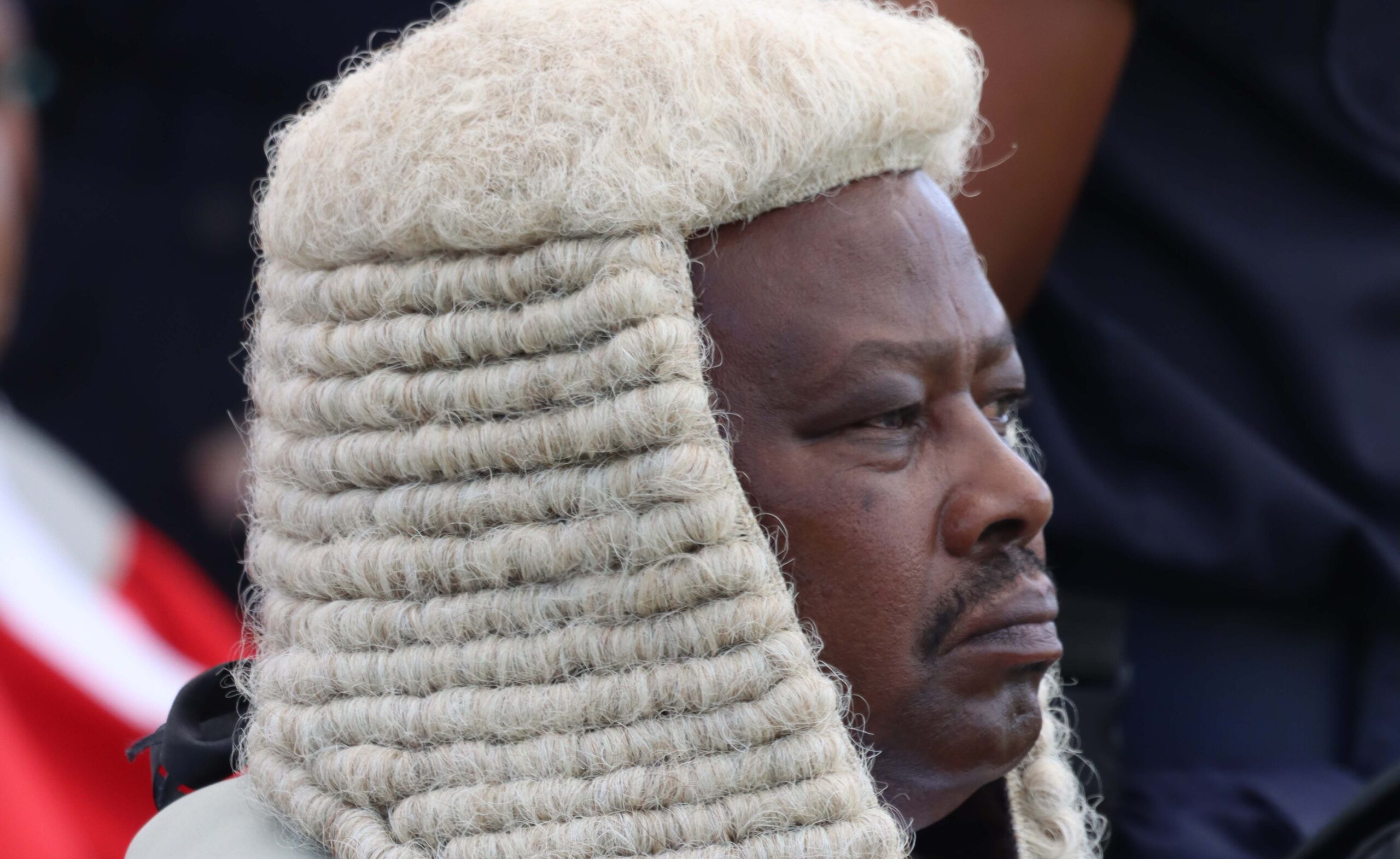…says courts are overwhelmed with criminal cases
…while crippled by lack of resources
Moorosi Tsiane
THE judiciary is buckling under the weight of a growing number of criminal cases, which it struggles to dispose of efficiently due to insufficient resources, Chief Justice Sakoane Sakoane has said.
For example, in 2024 alone, Magistrates’ Courts across the country handled 12 726 criminal cases but could only resolve 5758 cases, representing only 45.2%. Similarly, the High Court was faced with 1031 criminal cases but managed to dispose of just 591, equivalent to 57.3%.
Justice Sakoane made these remarks during the official opening of the 2025 High Court session at the Palace of Justice in Maseru this week.
Prime Minister Sam Matekane, Deputy Prime Minister and former Chief Justice Nthomeng Majara, Speaker of the National Assembly Tlohang Sekhamane, Senate President ‘Mamonaheng Mokitimi, ministers, Director of Public Prosecutions (DPP) Hlalefang Motinyane, heads of diplomatic missions, and legal practitioners were among the distinguished attendees.
Justice Sakoane expressed concern over the rising prevalence of violent crimes, including rape, murder, and stock theft, many of which involve firearms.
“There has been an alarming increase of cases committed by use of guns, rape, and theft of stock. The criminal justice system cannot cope with this increase,” Justice Sakoane said.
Apart from these criminal cases, the High Court was seized with 3051 civil cases and managed to dispose of 1217, while the Magistrates’ Courts had 10 470 civil cases and completed 4123 of them.
Other courts were also overwhelmed. The Court of Appeal had 76 cases and finalised 75, the Labour Appeal Court had 38 cases and resolved six, the Labour Court was seized with 336 cases and finalised 217, while the Judicial Commissioner’s Court had 305 cases and disposed of 132 of them.
This Justice Sakoane attributed to the inadequate resources, which he said were crippling the administration of justice. He added that the justice system could not cope with the increase in cases, and therefore the government must come on board.
“I therefore make a clarion call to both Parliament and the executive to come to the rescue by providing the justice sector institutions with adequate resources. Making more laws without corresponding availability of resources is not a solution. When new laws are enacted, there should be a legislative audit on the impact on the existing judicial infrastructure and manpower.”
He also said, in a bid to improve their job and avoid bias and bribery, DPP Motinyane has developed prosecution guidelines which will be formalised and gazetted once they are ready.
“The development of prosecution guidelines by the Director of Public Prosecutions is in the offing. They will be formalised and gazetted once they are ready. The guidelines will provide for transparency and clarity of decisions to prosecute and not to prosecute, and thereby dispel unfounded allegations of bribery, bias, and favouritism.
“The lack of improvement of the protection and welfare of witnesses continues to undermine speedy delivery of justice. Many cases collapse due to the unavailability of funds for food and transport for witnesses, lack of accommodation, and other logistical challenges. Government is called upon to adequately fund the accommodation, food, and transport for witnesses in criminal matters,” Justice Sakoane said.
Still in an effort to see a smooth running of the justice delivery system, the no-nonsense Judge said each sector has been tasked to develop performance standards and codes of ethics to ensure accountability and professionalism.
“Each justice sector institution has been tasked to develop performance standards and codes of ethics that will be gazetted to ensure accountability and professionalism across the justice sector. They are necessary for efficiency and integrity.
“Lastly, capacity building. Institutions are working on the development of their respective training plans, focusing on staff professional development and capacity building. To strengthen the relations between the bar and the bench, I have created a bar and bench committee.
“The committee consists of a judge as a chairperson, two lawyers nominated by the Law Society, and two magistrates nominated by the Judicial Officers Association of Lesotho (JOALE). It is in that committee that issues of common concern will be flagged, discussed, and resolved, and then escalated to heads of courts to implement.”
Justice Sakoane concluded by also noting that more Labour Court presidents were needed in to deal with the backlog of cases at the Labour Court.
“We urge the government to ensure that sufficient Labour Court presidents are employed in order to tackle the expected huge backlog of cases.”

